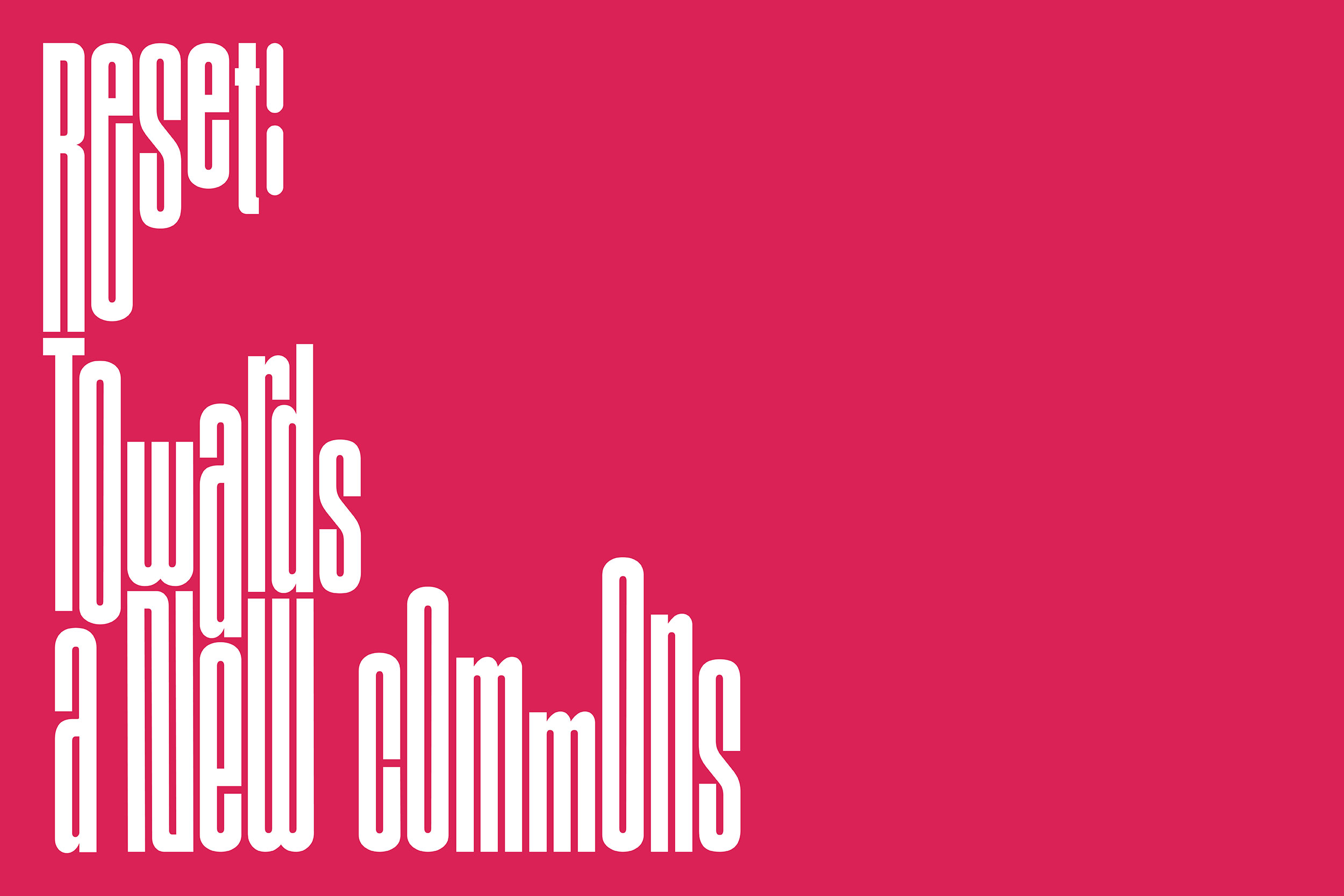Table of Contents
- Introduction
Case Studies
- Introduction
- Ed Roberts Campus
- Gallaudet University 6th Street Development
- Skyler
- Black Women Build
- New Swampscott High School and Senior Center
- Las Abuelitas Kinship Housing
- Side by Side
- Disability × Maternity: A Household User’s Manual for Young Mothers with Disability
- Carehaus
- 11th Street Bridge Park
- North Philly Peace Park
- Table Top Apartments
Aging Against the Machine
Block Party: From Independent Living to Disability Communalism
Decolonizing Suburbia
Re:Play Reclaiming the Commons through Play
About the Reading Room

The Center for Architecture presents Reset: Towards a New Commons, an exhibition analyzing architecture’s role in envisioning new dynamics of living and community. Contemporary American culture is increasingly disconnected, with people divided by needs, generations, and beliefs. The disconnection has been exacerbated by the enduring COVID-19 pandemic and illuminated by the growing racial justice movement. This exhibition will explore the belief that environments that foster cooperation, interaction, and mutual assistance can be an antidote to the intense divisions in American life.
The negative impacts of social estrangement extend, but are not limited to, the isolation of aging populations and people with disabilities. Cities, suburbs, and rural areas wittingly and unwittingly separate certain groups from larger communities in favor of spaces designed according to age, needs, or income, but their well-being would be improved by active inclusion in society. Rather than designing specific spaces for specific needs, the exhibition considers how spaces may be designed for all, addressing the need for barrier-free environments and practices rooted in Universal Design. Reset: Towards a New Commons will explore how architecture can address this while helping to create communities that foster inclusion in the broadest of terms.
The exhibition will present several historic and contemporary case studies that demonstrate ways in which designers have helped foster community, many of them focusing on specific target groups—isolated religious communes, parents-to-be, people with disabilities, or seniors with dementia. However, Reset: Towards a New Commons hopes to prompt designers to think beyond these examples and envision radically different environments that promote a broader and more holistic approach to inclusion. To achieve this, the Center for Architecture launched a nationwide RFP to solicit proposals from interdisciplinary teams that envision environments that encourage new ways of living collaboratively. Proposed sites will be located throughout the country, encompassing the regional differences that characterize the United States.
Co-Curators:
- Barry Bergdoll, Meyer Schapiro Professor of Art History and Archaeology, 19th- and 20th-century Architectural History, Columbia University
- Juliana Barton, Independent Historian and Curator
Exhibition Designer:
- Natasha Jen, Pentagram